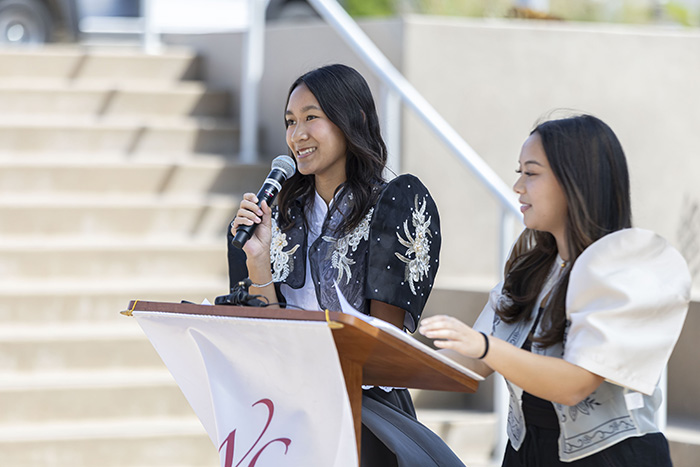SWC News Center
Another Place to Call Home: Finding Comfort and Confidence at SWC
By: Yunica Maire Villasis - October 18, 2025

When I was in high school, people told me that it would be difficult to make friends in college. I decided to go to Southwestern College (SWC) because it was close to home and I was able to save money. I was unaware of any clubs or communities to join, but knew who I did not want to be—someone who goes to college just to go to class then goes straight home. The Bayan Learning Community gave me more than what I could ever have expected.
Bayan is one of many learning communities at SWC, that focuses on exploring the culture(s) and identity(s) of Americans of Philippine descent. I first joined Bayan not knowing what it was. Since then, I have met so many people who have helped shape me into who I am today and now holds a special place in my heart.
In the first few weeks of the semester, I would often visit the learning community hub to do my homework. In this space, I was able to meet Bayan alumni. Despite being shy, they would always invite me to hang out with them. As a result, I eventually became more comfortable and began starting conversations with others first. For the first time at SWC, I felt I belonged and had a community to go to during my transition from high school to college and be vulnerable with. The friends I made in Bayan have become some of the closest to my inner circle, and are people I know I can go to whenever I am struggling.
Bayan also introduced professors who show that they care for me. One professor in particular comes to mind, English Professor Henry Aronson, who often checks in on me after class to get my feedback and see how I am doing. Professors like Henry, made me feel I had a safe space. I am truly grateful for him. Through him, I was able to apply and become one of his Power Study tutors for his English class, where I engage with his students and help them with their writing and understanding of the reading material. Not only am I helping teach fellow students in and out of class, but I am also learning from them as they bring me their insight and interpretations on their class topics.
I also serve as Co-President of the Bayan Student Organization at SWC. I decided to take on this leadership role because I want to give back to the program that gave me a home away from home. The program not only encouraged me to grow academically and personally, but also made an impact on me and changed how I experience college. My story alone pushes me to strive at making a similar impact on the current cohort, pushing them to become better versions of themselves, further than they may even thought possible. What I want for not just future Bayan students, but all students, is for them to experience my first year at SWC and ensure that they also have a reliable resource they can go to whenever they need.
After obtaining my associate's degree for accounting at SWC, I plan on transferring to San Diego State University (SDSU) to complete my bachelor’s degree. Once completed, I hope to also acquire my master’s and become a certified public accountant (CPA) or financial advisor. In the future, I aspire to own a finance firm and keep in touch with the people who have helped me grow when I first started my academic journey.